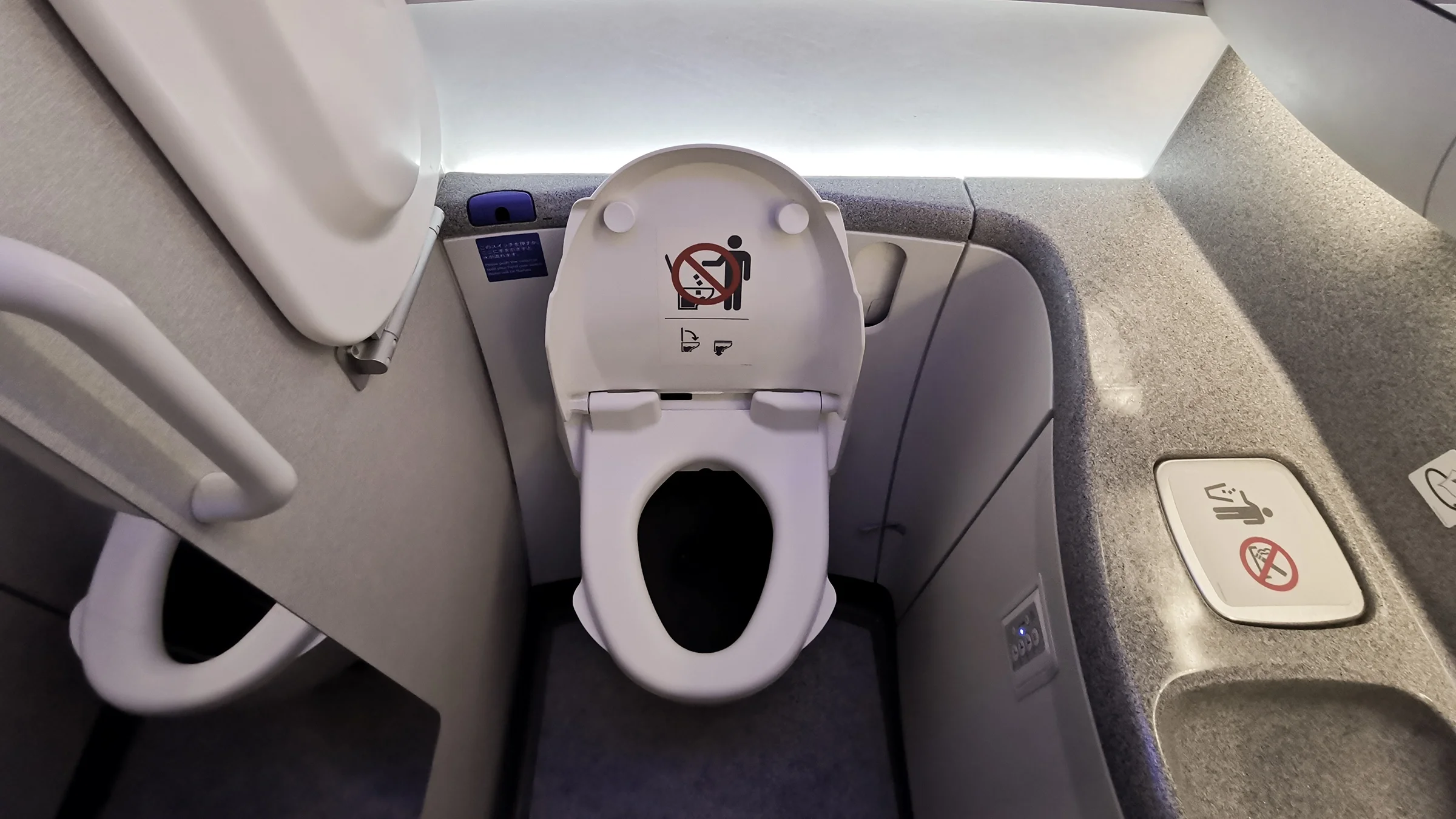Key takeaways:
Travelers’ diarrhea is the most common travel-related illness. It’s an infection that usually occurs within the first 2 weeks of travel.
There are steps you can take to minimize your risk of getting travelers’ diarrhea. This includes paying special attention to what you eat and drink — or even taking some preventive medications.
If you develop travelers’ diarrhea, one of the most important treatments is hydration. By staying hydrated and replenishing your body's fluid as well as electrolytes, you can improve your recovery.
Save on related medications
Estimates show that over a billion people travel internationally each year. Among those globetrotters, travelers’ diarrhea is the most common travel-related illness. It affects about 40 million people every year. Travel can be tough on the body for many reasons. Time changes, new foods, and fatigue can all make your body feel out of whack. For many people, this translates to symptoms like nausea or change in stool habits. Does this mean you have travelers’ diarrhea?
We’ll explain a little more about what this term means, how you can prevent the condition, and what to do if you get travelers’ diarrhea.
What is travelers’ diarrhea?
Travelers’ diarrhea doesn’t refer to those familiar changes in stool habits that happen when you travel and your system gets thrown out of balance. It’s actually a gastrointestinal infection caused by a pathogen (bacteria, virus, or parasite). And many different pathogens — depending on the travel region — can cause it.
Travelers’ diarrhea most often occurs within the first 2 weeks of travel. It’s also more likely to happen when you visit warmer destinations, such as parts of Africa, Asia, or Central and South America. Within these regions there are areas with limited resources, which makes it difficult to access clean water. Plus, some of the warmer and humid climates are more welcoming to bacterial growth.
The spread of travelers’ diarrhea is through fecal-oral transmission. This occurs when a pathogen in stool makes its way to another person’s mouth. This happens when someone doesn’t wash their hands well after using the restroom, which allows pathogens to transfer onto common surfaces and food. It can also happen in areas where there isn’t proper water sanitization, which leads to contaminated drinking water and food.
Symptoms of travelers’ diarrhea
People can have a wide range of symptoms, depending on their own bodies and the bacteria they ingest.
Diarrhea can start a few hours after exposure, or even up to a couple of weeks later. Most cases of travelers’ diarrhea are mild. Even untreated, most people will be better within a week. The average length of time someone feels sick is 3 days. But on the longer end, some people experience symptoms for weeks without proper treatment.
Experts specifically define travelers’ diarrhea as:
Three or more loose stools in a day (24-hour period)
One additional symptom — such as fever, abdominal pain or cramping, nausea or vomiting, or bloody stools
Symptoms that begin after arriving to a new destination, usually to a location with limited resources
What can I do to prevent travelers’ diarrhea?
There’s no guaranteed way to completely prevent travelers’ diarrhea. But there are several precautions you can take to decrease your risk.
Most importantly, to minimize the chance of ingesting contaminated food — be careful what you eat and drink. Additional helpful tips include:
Avoid uncooked foods, like salads.
Eat only peeled fruits and vegetables.
Drink only boiled or bottled water.
Avoid ice. The water that’s used to make ice isn’t always clean or sanitized.
Avoid street food. Many times these vendors don’t have proper conditions for food handling and storage.
Eat hot food. Cooking foods with heat is likely to kill most pathogens.
Medications
There are also some medications that may help to prevent traveler’s diarrhea.
Bismuth subsalicylate
Bismuth subsalicylate (Pepto-Bismol or Kaopectate) can decrease the risk of getting travelers’ diarrhea. The bismuth keeps pathogens from growing, and the salicylate decreases inflammation in the gut. It may also decrease the amount of water in stool, which decreases the frequency of diarrhea. But if you take this medication, there are some precautions to keep in mind:
Don’t take this for longer than 3 weeks. Like aspirin, it has salicylate, which can be toxic when you take too much of it.
Children shouldn’t take it due to possible salicylate toxicity.
It can lead to a black tongue and/or black stool, but this should clear when you stop taking it.
Bismuth can interact with other medications, so it’s a good idea to talk with your provider if you take other medications.
Probiotics
Probiotics are “good” bacteria that can help with digestion and the control of harmful bacteria in your intestines. Probiotics are in some food products — like yogurt — as well as health supplements. But there are conflicting study results on whether probiotics can help prevent travelers’ diarrhea. There’s a lot of variability in bacterial strains as well as dosing for probiotic supplements. As far as preventing travelers’ diarrhea, studies have shown anywhere from no difference to about 50% protection. Because there are minimal side effects for healthy people, probiotics are likely to do little harm if you want to try them as a preventive measure.
Antibiotics
In specific cases, pretreatment with antibiotics can help to prevent infectious diarrhea. Antibiotics don’t protect you from all the different types of pathogens that can cause the infection. In addition, many strains of bacteria have developed ways to survive or resist certain antibiotics.
For most travelers, experts don’t recommend pretreatment. These medications can be costly and have unpleasant side effects. For these reasons, experts recommend treatment early in the course of illness rather than pretreatment.
But if you have a weakened immune system, pretreatment with antibiotics may be an option. A visit with your healthcare provider before your trip can be helpful in deciding if it’s right for you.
How do I treat travelers’ diarrhea?
Sometimes, despite taking all the preventive steps, you may still come down with travelers’ diarrhea. With that in mind, you may be wondering about the treatment measures you can take if you do get sick.
Rehydration
Perhaps the simplest and most important thing you can do is to stay hydrated. The body loses a lot of fluids and electrolytes with diarrhea. You can replace these losses by drinking liquids. Here are some tips:
Clean water (packaged or treated) is OK.
Drinks that have electrolytes are an even better option because your body loses more than just water with diarrhea.
Soup broth can be a great way to replace both fluids and nutrients that your body needs.
Products like Pedialyte are designed to have balanced electrolytes to help replenish losses through diarrhea. These solutions are targeted for infants, but both children and adults can use them in cases with more severe symptoms.
Infants who are breastfeeding should continue to do so.
If you can’t find one of these options in the store, you can make a similar liquid at home with this recipe for an oral rehydration solution:
Salt: ½ spoon
Sugar: 6 spoons
Clean water: 1 liter
Over-the-counter medications
In addition to oral rehydration, there are some medications that may help. While these medications can’t cure travelers’ diarrhea, they can certainly help make you more comfortable:
Bismuth subsalicylate (Pepto-Bismol): This is helpful in prevention as well as in the treatment of travelers’ diarrhea. It can decrease the number of loose stools. But it doesn’t work as quickly or as well as loperamide.
Loperamide (Imodium A-D) and Lomotil (diphenoxylate/atropine): These don’t cure diarrhea but can minimize the number of loose stools and trips to the restroom. They aren’t recommended for children under 12 years of age.
Antibiotics
When started early, antibiotics can be helpful in decreasing the length of illness in some cases. Talk to your healthcare provider about a prescription for antibiotics that you can take if you come down with travelers’ diarrhea. That can help you decide if a course of antibiotics is right for you, which takes into account the following:
Preexisting conditions: Certain conditions can make it easier to get sick with travelers’ diarrhea, such as a weakened immune system, diabetes, or inflammatory bowel disease.
Daily medications: Medications like proton pump inhibitors (a category of antacids that treat ulcers and reflux) and diuretics (medications that remove extra fluid in your body) can put you at risk for more severe illness.
Destination: In certain parts of the world, bacteria have built resistance due to repeat use of specific antibiotics. This means the bacteria have found ways to survive certain antibiotics.
Side effects: Some antibiotics can have side effects that include nausea, diarrhea, and upset stomach that are similar to mild cases of travelers’ diarrhea.
Cost: Some of the newer antibiotics may be helpful but are also expensive.
Do I need to seek medical care?
Most people with travelers’ diarrhea recover on their own within a few days. But it’s especially important to closely monitor older adults, infants and young children, as well as pregnant women. Dehydration can sometimes happen more easily in these groups. Signs to watch for include:
Fussy or irritable children
Sunken eyes
Fast heart rate
Weak or faint pulse
Significant weakness
Increased lethargy
New confusion or disorientation
About 10% of people with travelers’ diarrhea seek out medical care for more severe symptoms. Among those, very few people need to stay in the hospital. But any of the following symptoms require medical attention:
Severe abdominal pain
Persistent and/or uncontrollable vomiting
Difficulty staying awake or confusion
Significant decrease in urination
Diarrhea that doesn’t seem to be improving
Bloody diarrhea
The bottom line
Travelers’ diarrhea is a very common gastrointestinal infection that affects millions of people every year. There are ways to decrease your risk of getting it, like avoiding foods and liquids that are more likely to be contaminated. It may also help to talk to your healthcare provider before you travel. They can help you decide if you need to bring any preventive medications on your trip. Through preparation, you can minimize your risk of illness. That way you can enjoy your vacation! But if you do get travelers’ diarrhea, be sure to stay hydrated and talk to your provider to see if medications may help.

Why trust our experts?


References
Centers for Disease Control and Prevention. (2020). Rehydration therapy.
Conner, B. A. (2019). Travelers' diarrhea. Centers for Disease Control and Prevention.
Diemert, D. J. (2006). Prevention and self treatment of traveler’s diarrhea. Clinical Microbiology Reviews.
Dunn, N., et al. (2022). Travelers diarrhea. StatPearls.
Giddings, S. L., et. al. (2016). Traveler’s diarrhea. The Medical Clinics of North America.
Leung, A. K. C., et al. (2019). Travelers’ diarrhea: A clinical review. Recent Patients on Inflammation & Allergy Drug Discovery.














